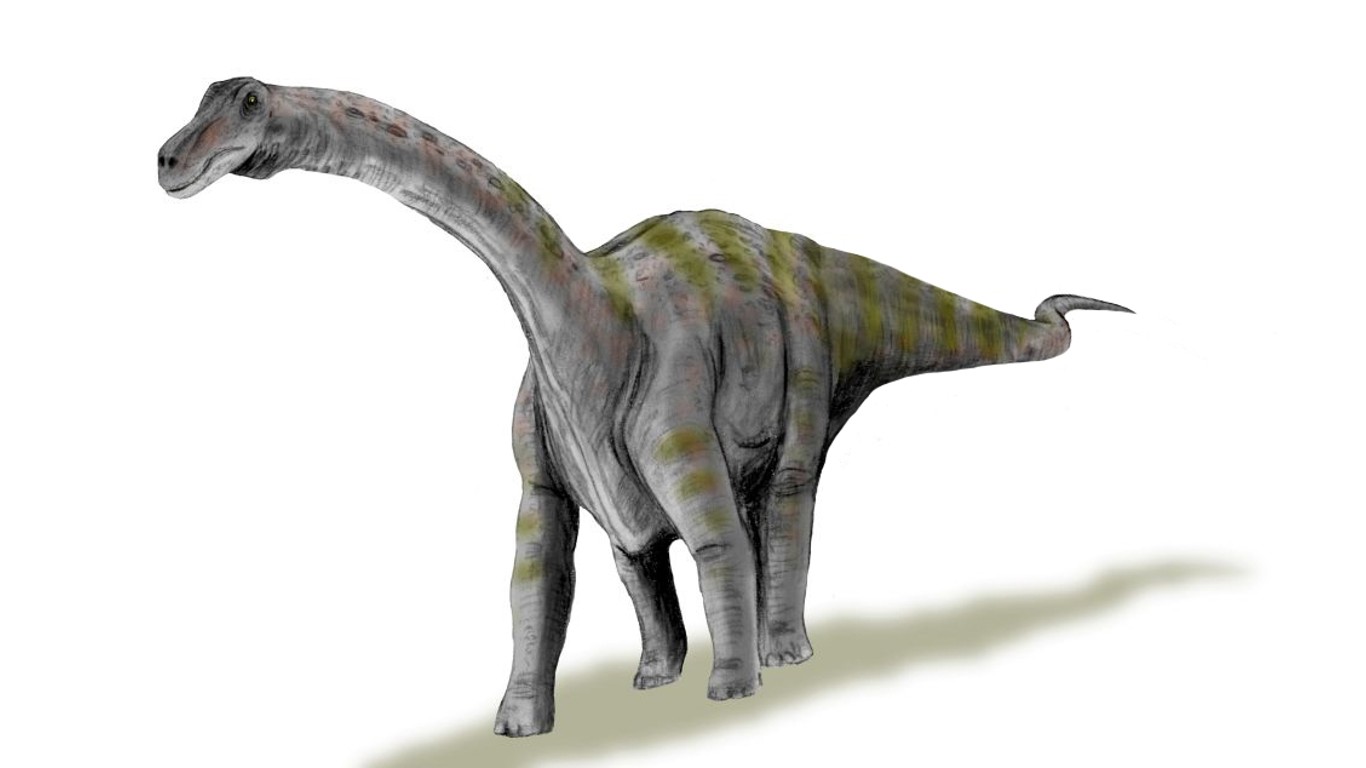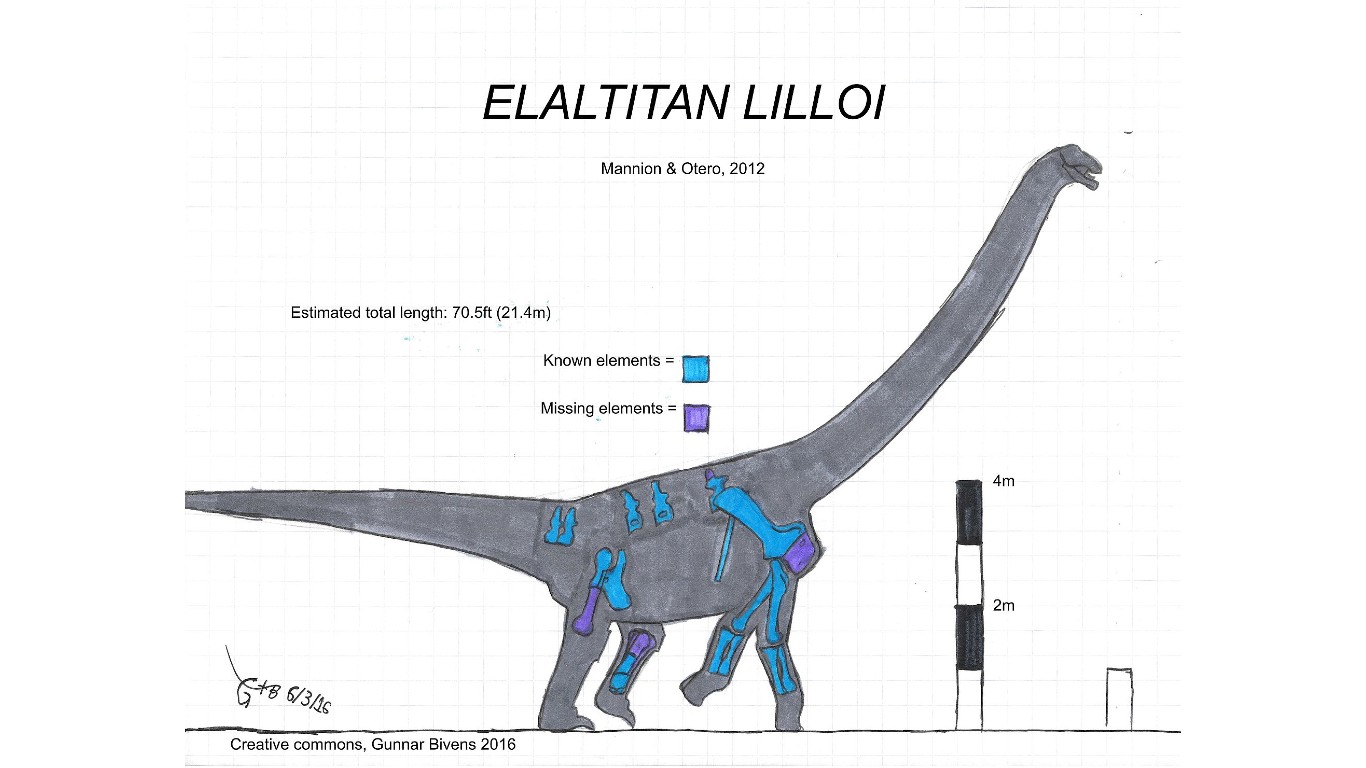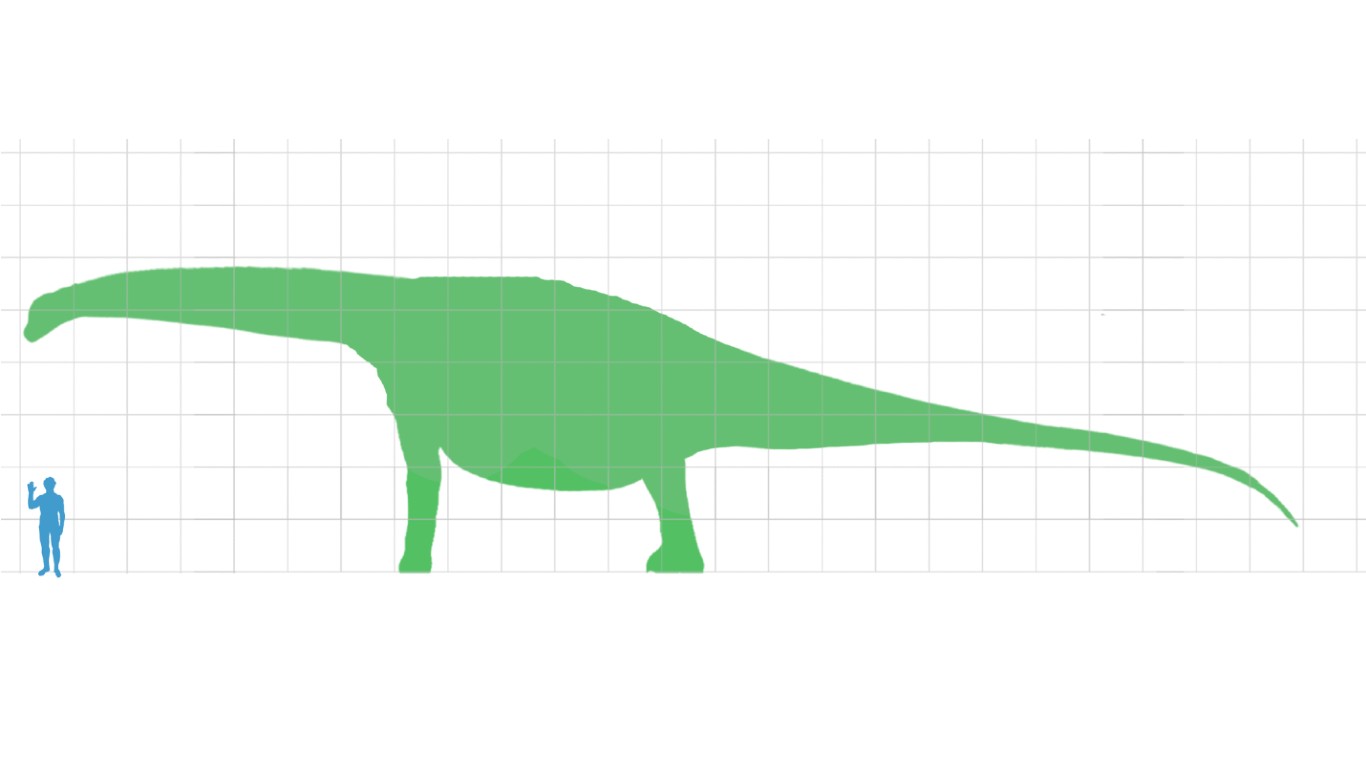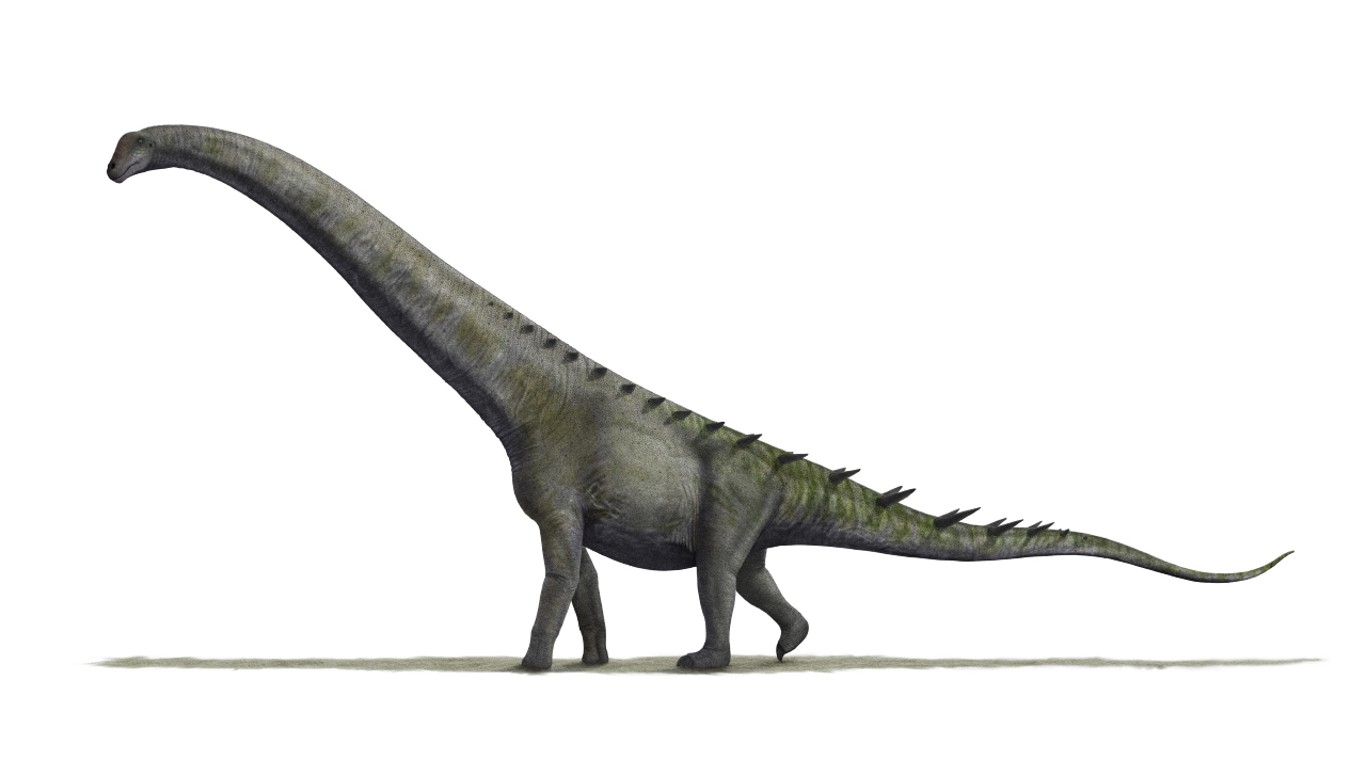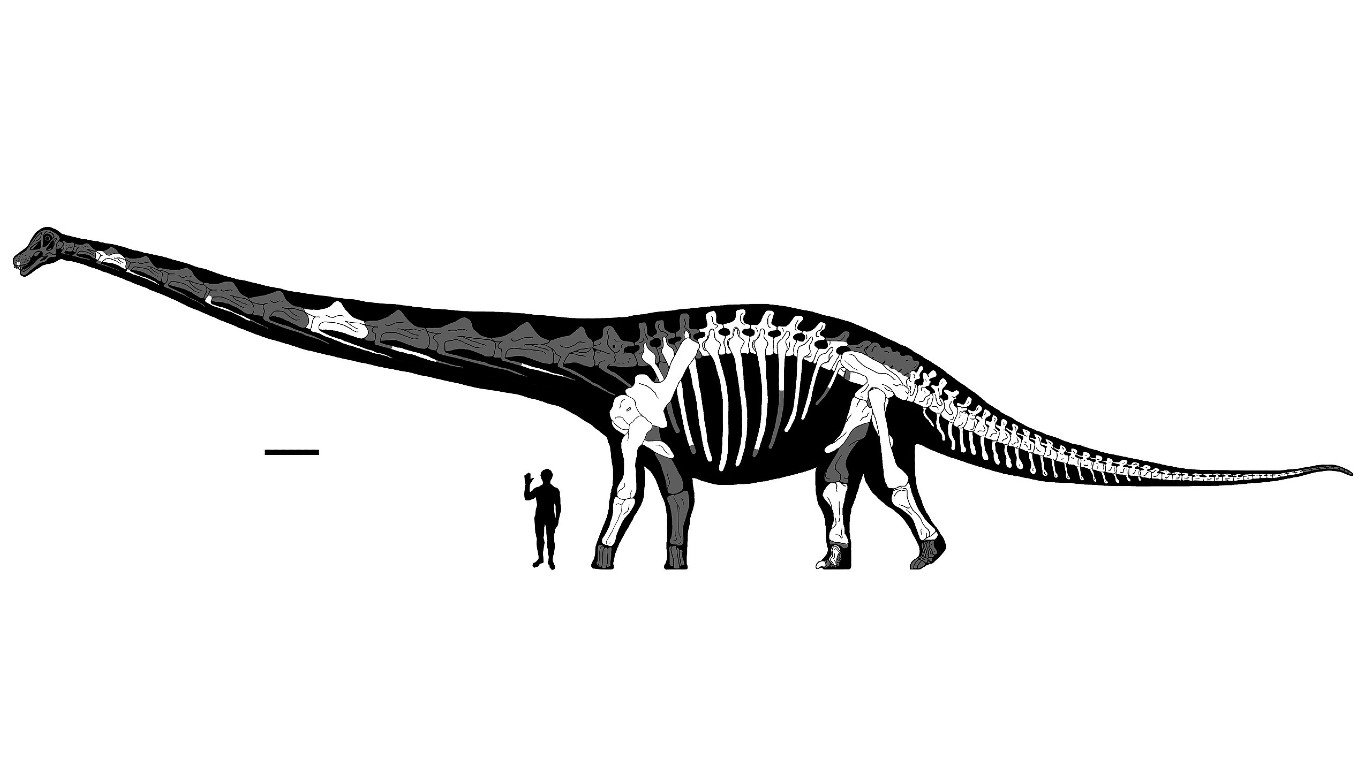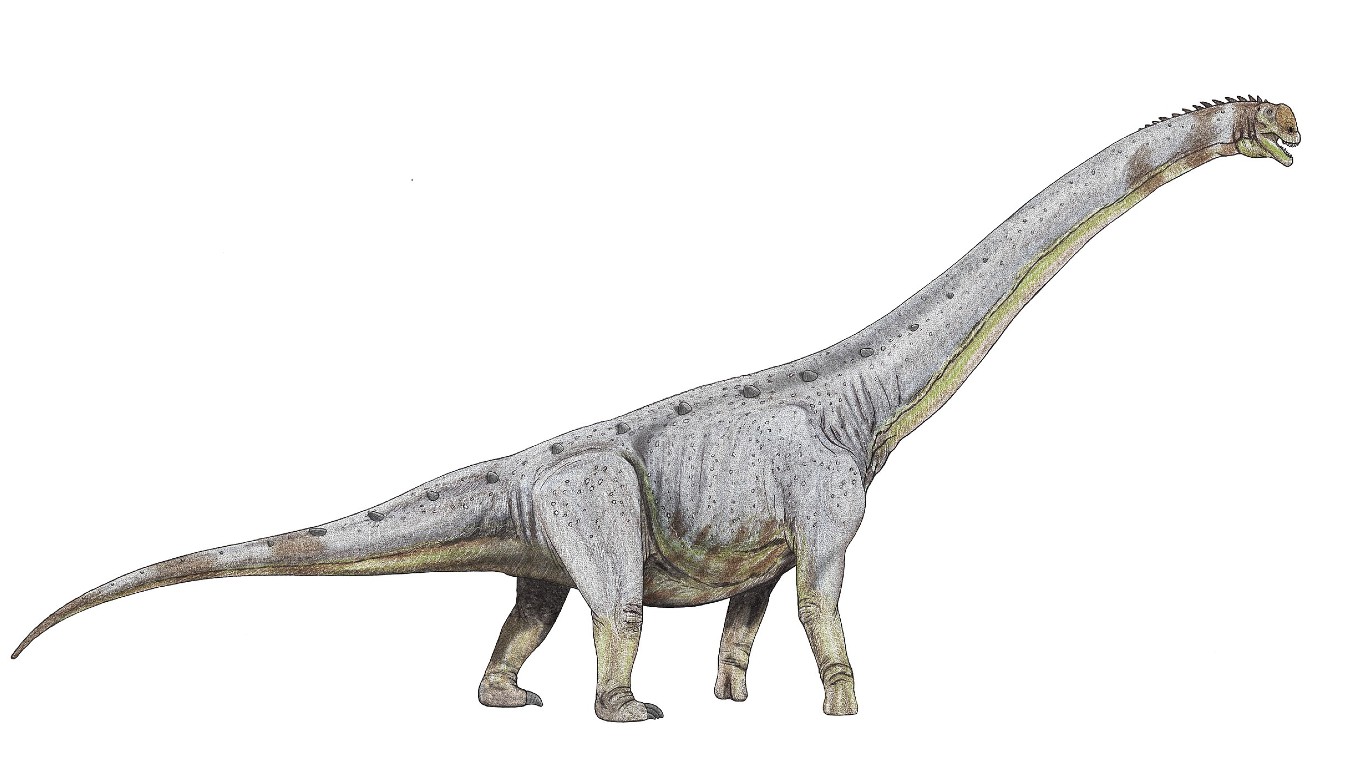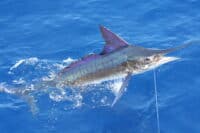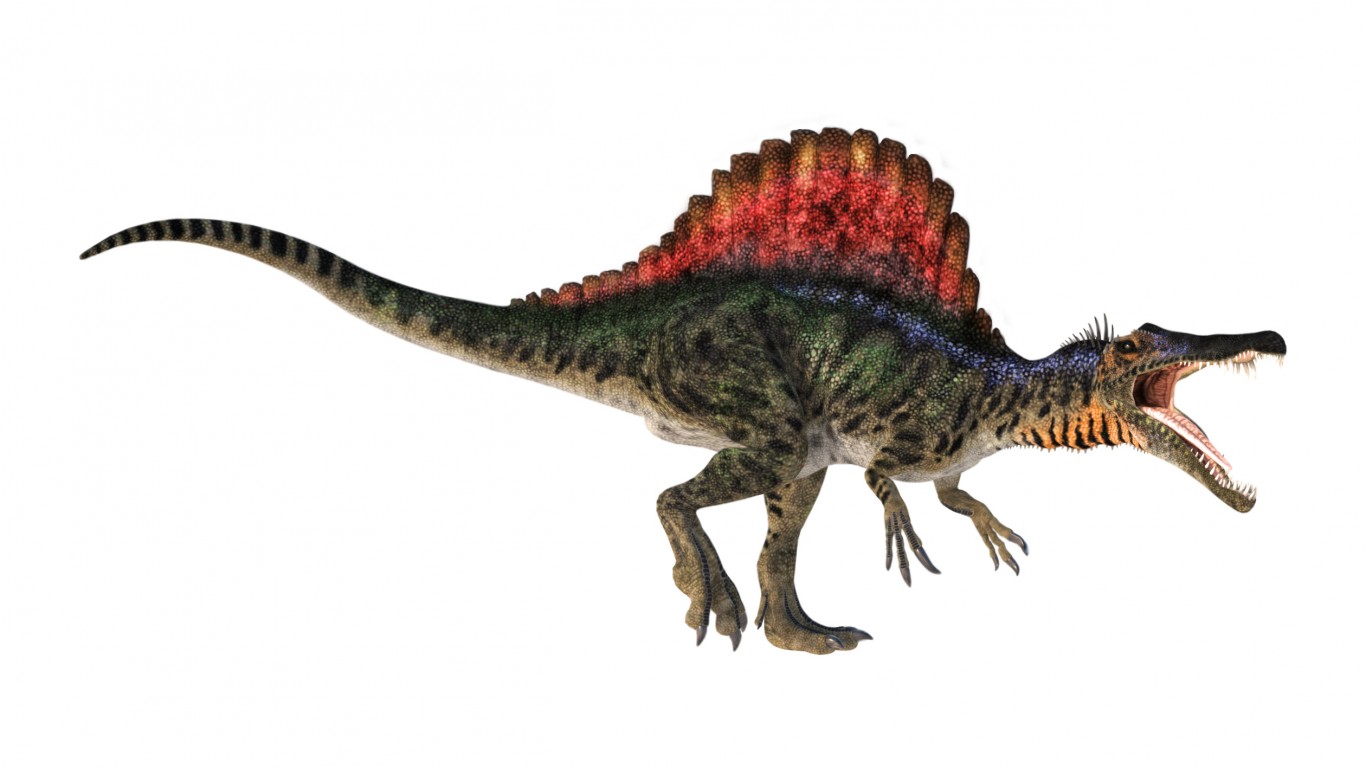
The “age of dinosaurs,” officially known as the Mesozoic Era, lasted from 252 to 66 million years ago. Scientists believe that period ended when an asteroid hit Earth. This spread vaporized minerals into the air around the globe, in effect creating a lasting winter that made plant growth impossible. Most animal life, deprived of food, was extinguished. (These are 17 cataclysmic events that changed the earth forever.)
Expert observations about the period, particularly about the size and type of dinosaurs, have changed over decades, particularly as new fossils are discovered. These discoveries are so frequent now that the Smithsonian publishes “The Top Ten Dinosaur Discoveries” each and every year. To date, though, the largest dinosaur in history is the Argentinosaurus.
Last year, a team of researchers with Naturales y Museo, Universidad de Zaragoza, and Universidad Nacional del Comahue found evidence that a so-called titanosaur discovered in Argentina in 2012 was the largest dinosaur in history. It was named Argentinosaurus in honor of its place of discovery. (Today, this is the biggest animal in the world.)
There is some confusion as to whether “size” should be determined by weight or length, but the Argentinosaurus has it covered on both counts: It measures 131 feet in length and weighs 110 tons – 220,000 pounds.
Click here to see the largest dinosaurs in history
The candidate for the largest dinosaur could change again. According to Discovery, the British paleontologist Mary Ann Mantell was the first person to find fossilized bones while she was on a walk in 1822. If humans remain on earth as long as dinosaurs did, there is bound to be another discovery that adds to the long list of “largest dinosaurs”.

15. Shingopana songwensis
> Length: 26 feet
> Weight: 5.5 tons
> Diet: Herbivorous
> Fossils found in: Tanzania
[in-text-ad]
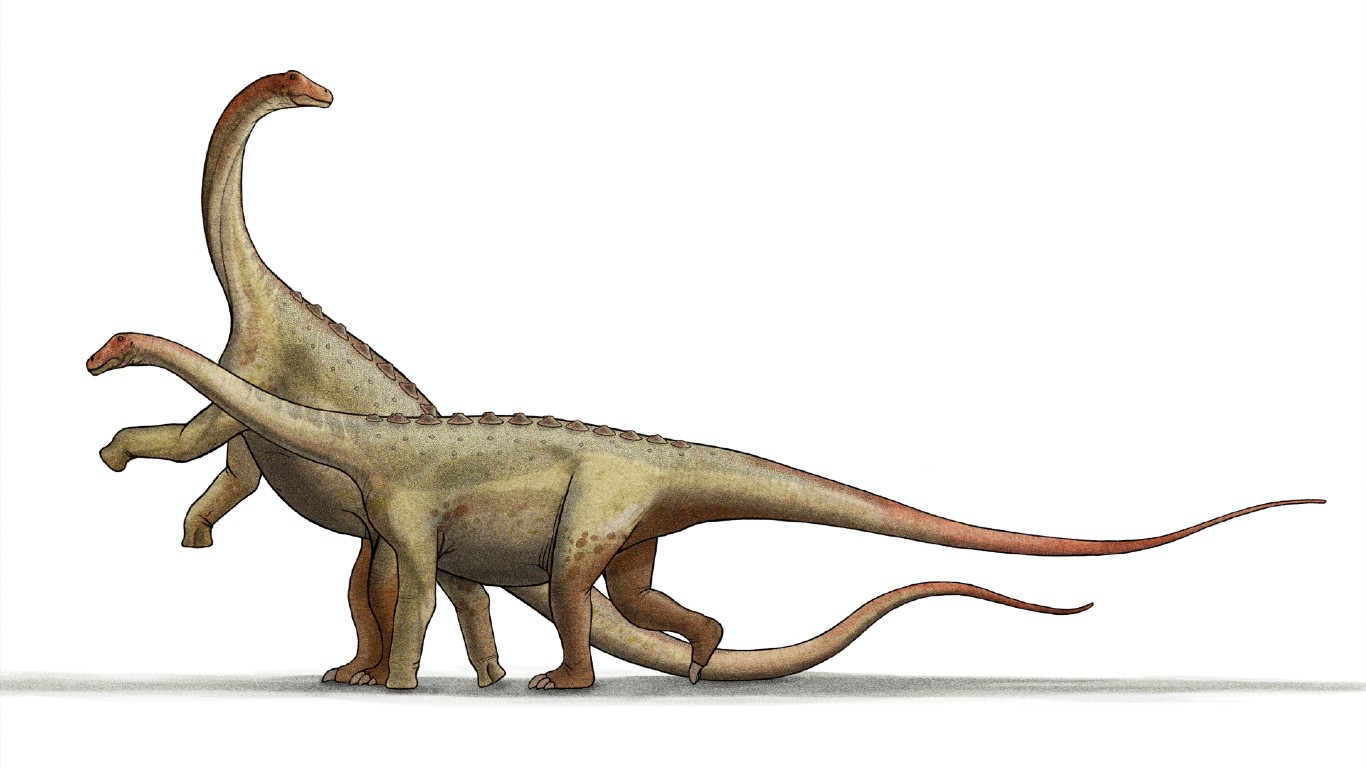
14. Saltasaurus
> Length: 42 feet
> Weight: 7.7-8 tons
> Diet: Herbivorous
> Fossils found in: Argentina

13. Spinosaurus
> Length: 41-59 feet
> Weight: 10 tons
> Diet: Carnivorous
> Fossils found in: Egypt
12. Rapetosaurus krausei
> Length: 49 feet
> Weight: 16 tons
> Diet: Herbivorous
> Fossils found in: Madagascar
[in-text-ad-2]
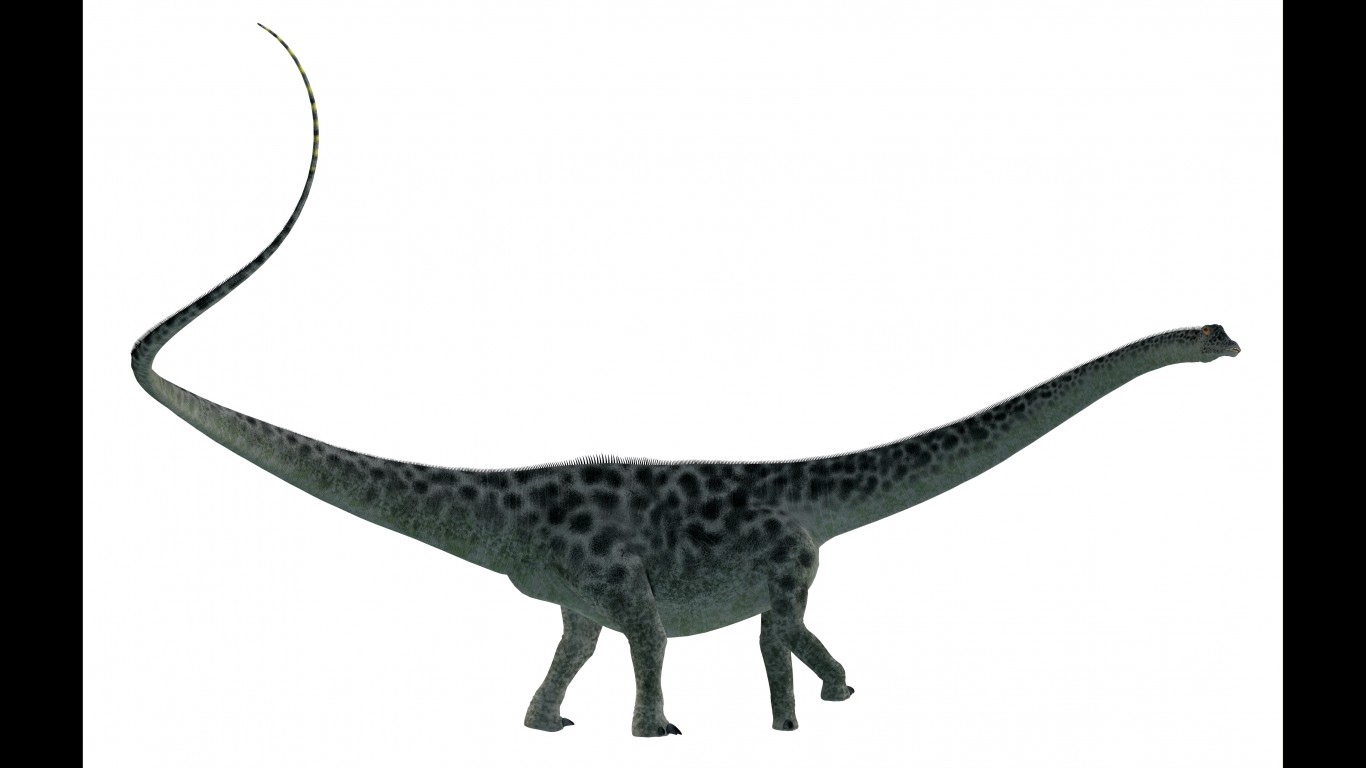
11. Diplodocus longus
> Length: 80 feet
> Weight: 16.3 tons
> Diet: Herbivorous
> Fossils found in: North America
10. Elaltitan lilloi
> Length: 59 feet
> Weight: 60 tons
> Diet: Herbivorous
> Fossils found in: Argentina
[in-text-ad]
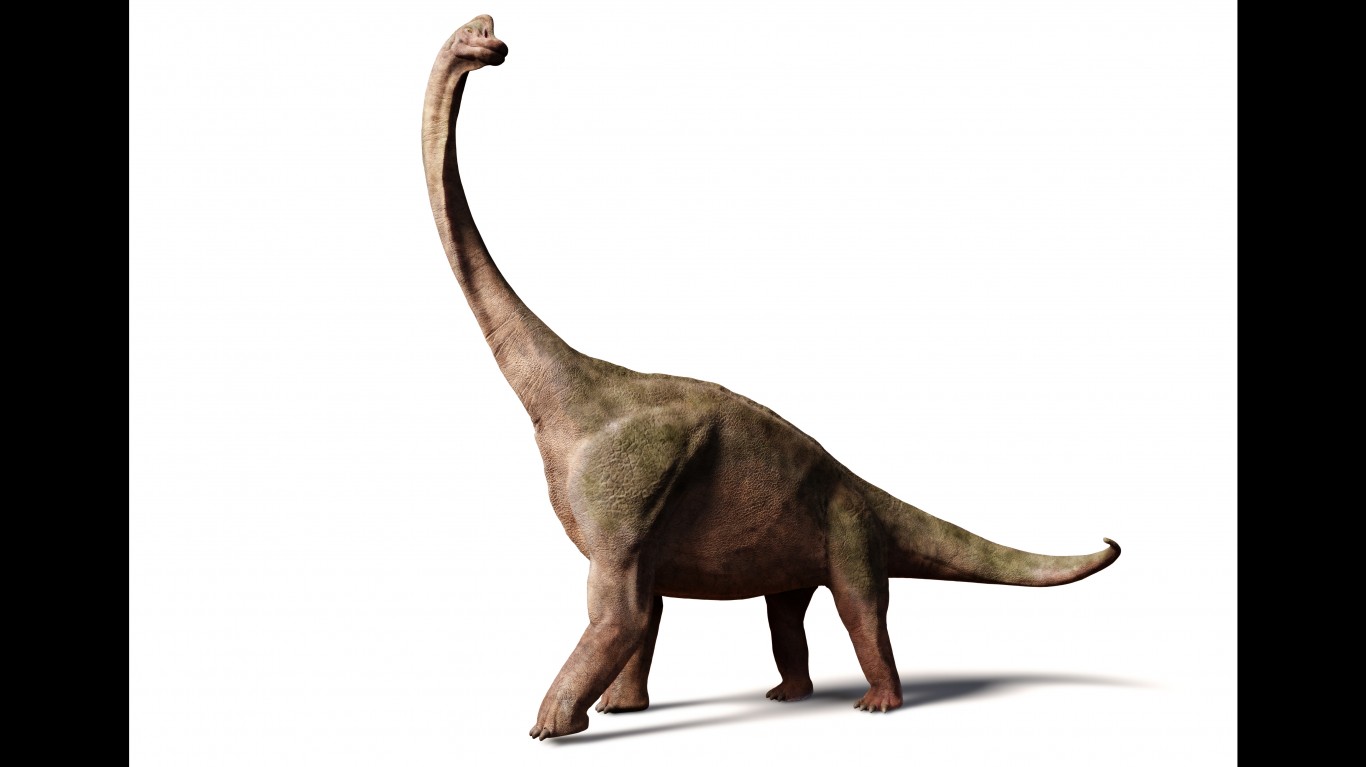
9. Brachiosaurus Altithorax
> Length: 59-69 feet
> Weight: 62 tons
> Diet: Herbivorous
> Fossils found in: North America
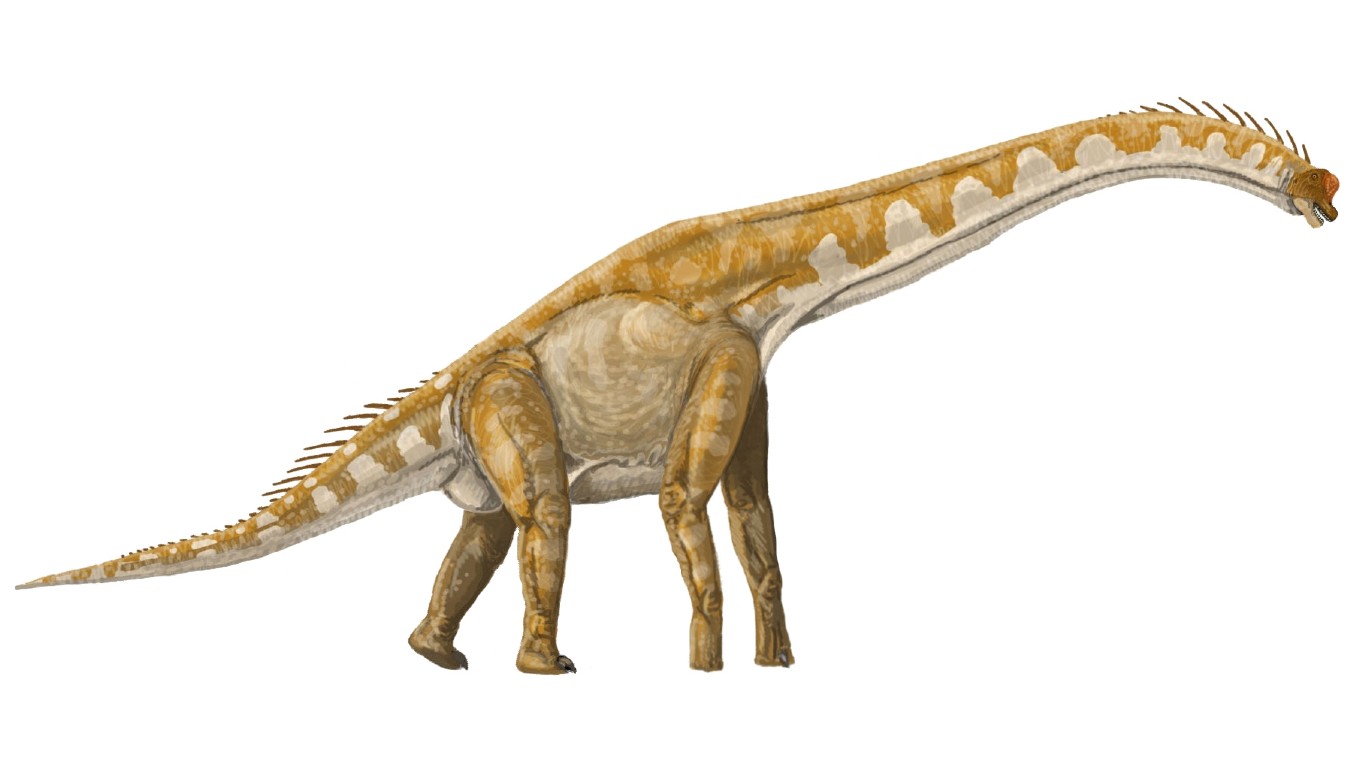
8. Giraffatitan brancai
> Length: 74 feet
> Weight: 37.5 tons
> Diet: Herbivorous
> Fossils found in: Tanzania

7. Austroposeidon magnificus
> Length: 82 feet
> Weight: 30-32 tons
> Diet: Herbivorous
> Fossils found in: Brazil
[in-text-ad-2]
6. Turiasaurus riodevensis
> Length: 118-128 feet
> Weight: 40-48 tons
> Diet: Herbivorous
> Fossils found in: Spain
5. Futalognkosaurus dukei
> Length: 102-112 feet
> Weight: 42-50 tons
> Diet: Herbivorous
> Fossils found in: Argentina
[in-text-ad]
4. Dreadnoughtus
> Length: 85 feet
> Weight: 65.4 tons
> Diet: Herbivorous
> Fossils found in: Argentina
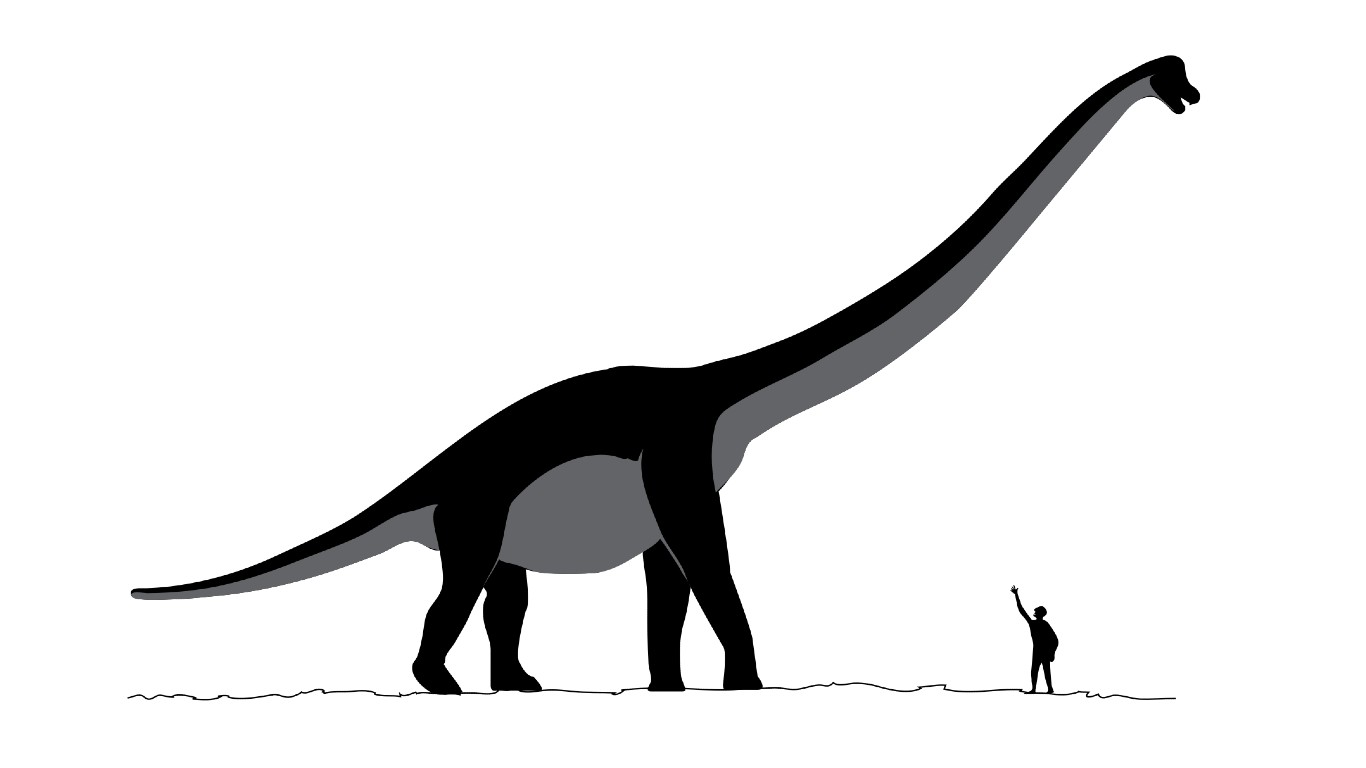
3. Sauroposeidon proteles
> Length: 111 feet
> Weight: 55-66 tons
> Diet: Herbivorous
> Fossils found in: North America
2. Paralititan
> Length: 100 feet
> Weight: 83 tons
> Diet: Herbivorous
> Fossils found in: Egypt
[in-text-ad-2]
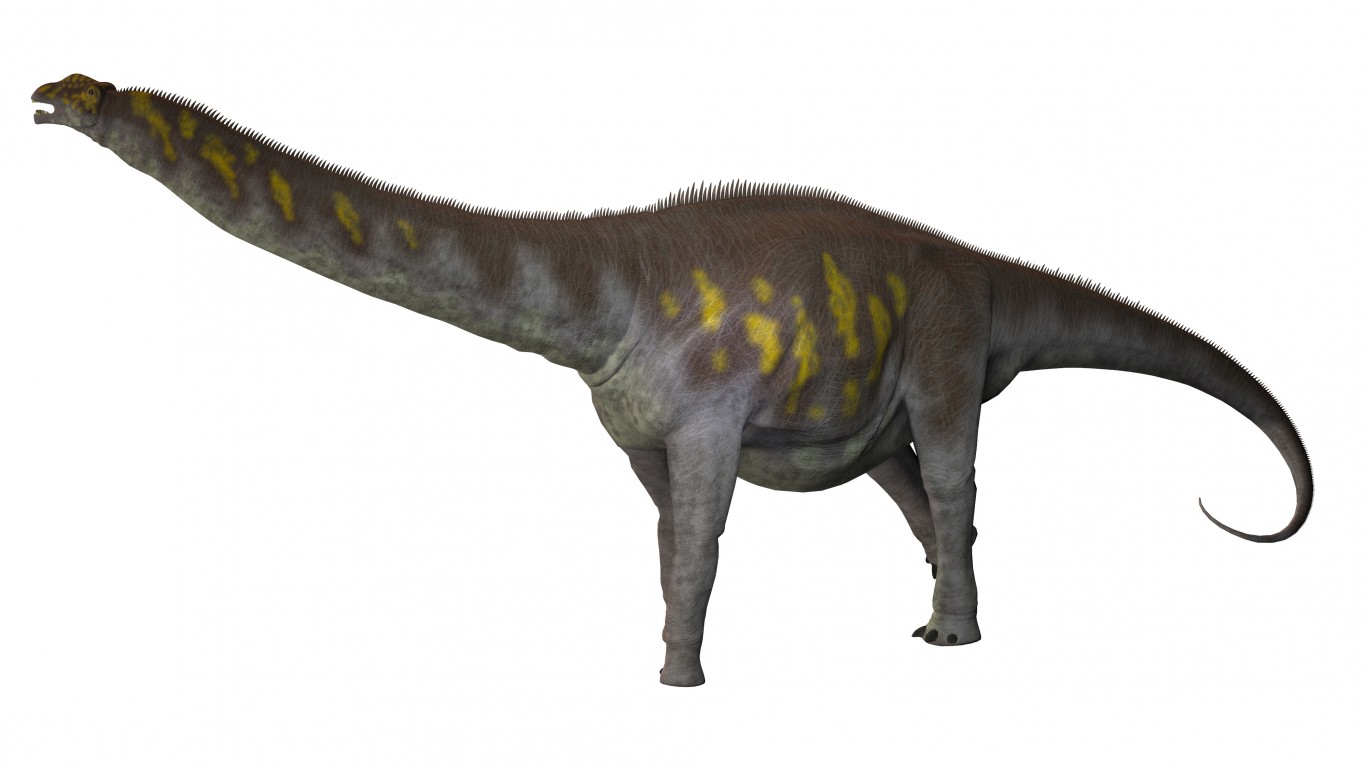
1. Argentinosaurus
> Length: 131 feet
> Weight: 110 tons
> Diet: Herbivorous
> Fossils found in: Argentina
Take Charge of Your Retirement In Just A Few Minutes (Sponsor)
Retirement planning doesn’t have to feel overwhelming. The key is finding expert guidance—and SmartAsset’s simple quiz makes it easier than ever for you to connect with a vetted financial advisor.
Here’s how it works:
- Answer a Few Simple Questions. Tell us a bit about your goals and preferences—it only takes a few minutes!
- Get Matched with Vetted Advisors Our smart tool matches you with up to three pre-screened, vetted advisors who serve your area and are held to a fiduciary standard to act in your best interests. Click here to begin
- Choose Your Fit Review their profiles, schedule an introductory call (or meet in person), and select the advisor who feel is right for you.
Why wait? Start building the retirement you’ve always dreamed of. Click here to get started today!
Thank you for reading! Have some feedback for us?
Contact the 24/7 Wall St. editorial team.
